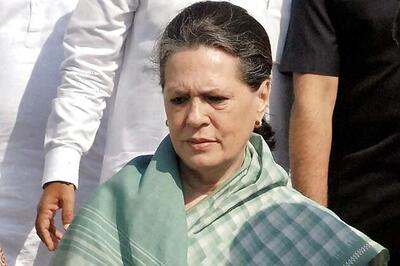
views
SEOUL: The 70-year security alliance between the United States and South Korea is under fresh focus as the allies reached an agreement on Sunday under which Seoul will pay higher costs for hosting American troops as deterrence against North Korea.
The following is details of their security arrangement, military cost-sharing talks and the U.S. troop presence in South Korea.
DECADES OF ALLIANCE
At the end of the 1950-1953 Korean War, the United States and South Korea signed a treaty of mutual defence, where the two countries agreed to collective self-defence should either be threatened in the Pacific region. The deal provided the basis for the stationing of U.S. forces in South Korea.
In 1966, the two countries signed the Status of Forces Agreement (SOFA), which laid down the rules governing and protecting U.S. personnel stationed in South Korea.
The agreement’s Article V says the United States will bear all costs for U.S. troops’ maintenance, except those to be borne by South Korea, which included furnishing and compensating for “all facilities and areas and rights of way”.
SHARING THE COST
To determine South Korea’s contribution to the cost of U.S. troops as described in SOFA, the two countries have signed Special Measures Agreements, or SMAs, 10 times since 1991, usually to cover multiple years.
Under the last agreement, reached in February 2019 for one year, South Korea agreed to increase its contribution to just under 1.04 trillion won ($921.5 million), an 8.2% hike from the previous deal.
The allies reached a new, six-year deal at talks on Sunday, where Seoul agreed to a “meaningful increase” in its share, ending two years of standoff.
Former U.S. President Donald Trump had demanded $5 billion, a five-fold jump, rejecting South Korea’s offer to pay about 13% more.
South Korean sources had raised hopes that President Joe Biden’s administration would agree to a deal close to their proposal.
U.S. FORCES IN KOREA
There are about 28,500 American troops stationed in South Korea, the United States’ third-largest military presence outside its country after Japan and Germany, according to data from the U.S. Defense Manpower Data Center.
U.S. Forces Korea (USFK) operates about 90 combat planes, 40 attack helicopters, 50 tanks and some 60 Patriot missile launchers, according to South Korea’s Defence White Paper issued in December.
USFK data showed it had about 19,500 Army soldiers, 7,800 airmen and women, 350 Navy sailors and 120 Marines stationed in South Korea.
Camp Humphreys in Pyeongtaek, south of Seoul, is the largest U.S. overseas military base, housing the USFK headquarters and thousands of troops, civilian workers and their family members. Other major bases include Army Garrison Yongsan in central Seoul, Camp Walker in the southeastern city of Daegu, and two air bases in Osan and Gunsan, south of Seoul.
COST OF ALLIANCE
Out of Seoul’s 1-billion-won contribution in 2019, 48% was used to pay salaries to some 9,000 South Koreans hired by U.S. troops, 36% to cover construction costs such as building facilities within U.S. bases, and the rest for military assistance expenses including services and materials, according to South Korea’s Defence White Paper.
More than 90% of the costs South Korea shouldered in 2019 went directly back into its economy, a State Department official said.
Seoul had been pursuing a multi-year accord as the allies renew it every three five or years, with drawn-out negotiations often creating a vacuum.
After the 2019 pact expired with no new deal, about 4,000 South Korean workers of the USFK were placed on unpaid leave, prompting the two countries to scramble for a stopgap agreement to allow them to return to work.
($1 = 1,128.5500 won)
Disclaimer: This post has been auto-published from an agency feed without any modifications to the text and has not been reviewed by an editor
Read all the Latest News, Breaking News and Coronavirus News here




















Comments
0 comment